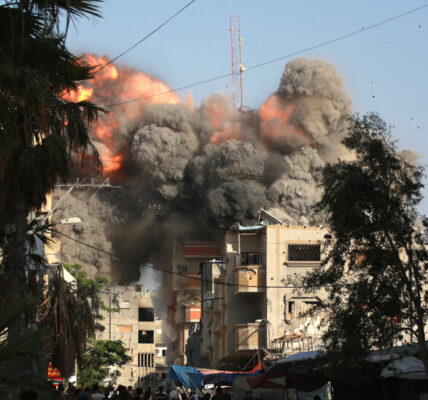After President Ebrahim Raisi of Iran was killed in a helicopter crash, Israeli officials quickly dismissed suggestions that they were behind his death, which Iranian state news media said was the result of “technical failure.”
Analysts said Monday that Israel, despite being one of Iran’s biggest foes, saw little strategic benefit from Mr. Raisi’s death and was not likely to change its posture toward Tehran.
In Israel, Mr. Raisi was perceived as a weak figurehead who had little influence on Iran’s foreign policy, in particular its backing for Israel’s enemies across the Middle East. Israeli experts said that his replacement was expected to maintain Iran’s stance toward Israel, and that the real power in Tehran lay with the supreme leader, Ayatollah Ali Khamenei, and the Islamic Revolutionary Guards Corps.
“From Israel’s point of view, I don’t see any achievement in his being replaced by some other radical conservative Iranian,” said Sima Shine, a former senior official in the Mossad, Israel’s foreign intelligence agency, where she focused on Iran. “The president is not the most important person in Iran,” said Ms. Shine, now an analyst at the Institute for National Security Studies, a research group in Tel Aviv.
With or without Mr. Raisi, Israel still sees Iran as an existential threat, both because of its efforts to build a nuclear program as well as its support for groups that are hostile to Israel, including Hamas in Gaza, Hezbollah in Lebanon and the Houthis in Yemen.
To restrain Iranian influence, Israel has assassinated Iranian officials and targeted its nuclear and military facilities. In 2020, Israeli agents killed Iran’s top nuclear scientist using a remote-controlled gun. Earlier this year, an Israeli strike in Syria killed three senior Iranian military commanders, prompting Iran to respond with a huge barrage of ballistic and cruise missiles.
But Israel was unlikely to have killed Mr. Raisi, because he, unlike experienced scientists and generals, is ultimately so replaceable, according to Meir Javedanfar, an Iranian-Israeli professor who teaches Iranian studies at Reichman University in Israel.
The killing of a nuclear scientist might slow the progress of Iran’s nuclear program, but any Iranian president is likely to maintain the same antagonism toward Israel, he said.
“His absence or presence” would not have much of an impact either way, Professor Javedanfar said. “The same cannot be said of a nuclear scientist, working on a program that could produce a nuclear bomb to threaten Israel.”
He called Mr. Raisi “a foot soldier of the supreme leader,” and added: “He was a loyal servant, with little influence within the regime.”




